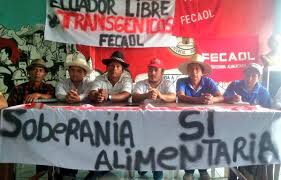Pueblo Huarpe de Guanacache: organización, lucha y resistencia
El Instituto para el Desarrollo Rural de Sudamérica (IPDRS) ofrece el presente artículo que surgió de la reflexión de la temática de tierras en Argentina. La autora hace una descripción de la problemática del acceso a la tierra y las acciones concretas que el Gobierno de ese país ha realizado para cambiar esa situación. De esta forma, el presente artículo sirve como un documento descriptivo del problema de la tierra y plantea una visión crítica a la situación actual.



